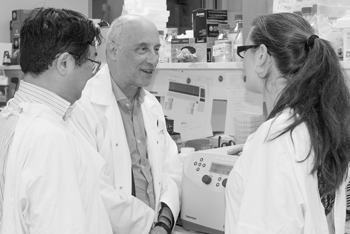Explained the molecular process for the phenomenon of ‘metabolic memory’ — the process whereby previous episodes of poor glucose control lead to cardiovascular injury in diabetes.
Human cells have the ability to ‘remember’ and replicate the effects on the body of a poor diet. This means the long-term deleterious effects of chronic elevation of blood glucose, as seen in diabetes, are remembered but how this occurs is unknown. This pathway is considered to be ‘epigenetic’ (i.e. an environmental influence on gene expression), whereby glucose interacts with genes to cause organ injury.
Baker scientists identified a particular enzyme, Set7, which regulates expression of genes which code for proteins that cause heart, blood vessel and kidney damage (El-Osta, A et al. J Exp Med 2008); (Brasacchio, D et al. Diabetes 2009). Blocking these pathways may reduce organ injury in diabetes.
These findings are clinically important as they indicate that individuals with diabetes will potentially suffer end organ damage as a result of previously not managing their diabetes adequately. This emphasises the important role of clinicians and patients working together to optimise management of their diabetes.

Mark Cooper with a colleague in the Diabetes Complications Laboratory.

